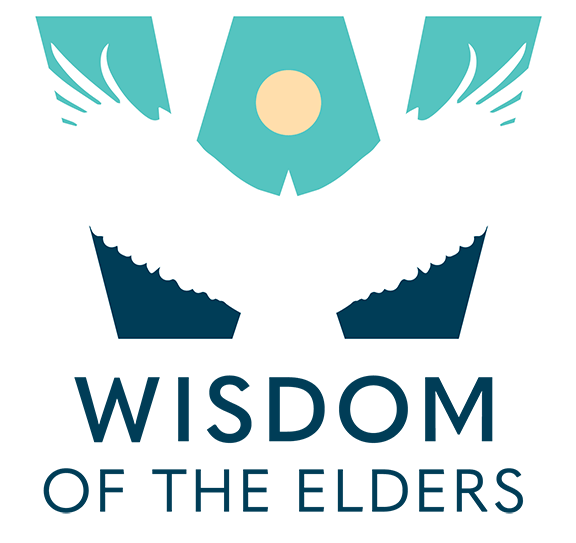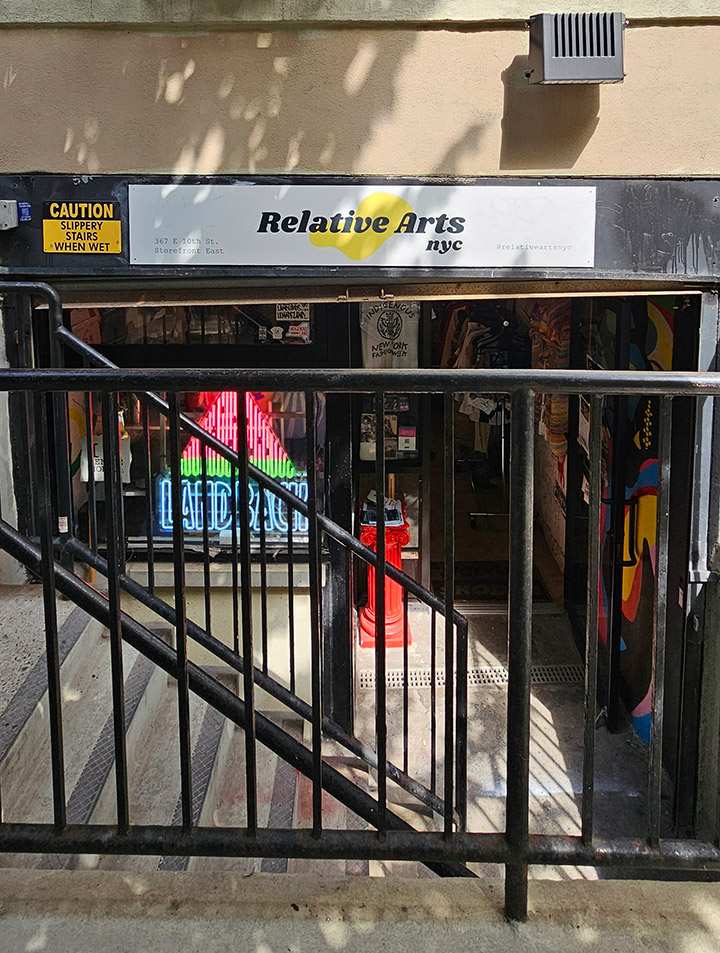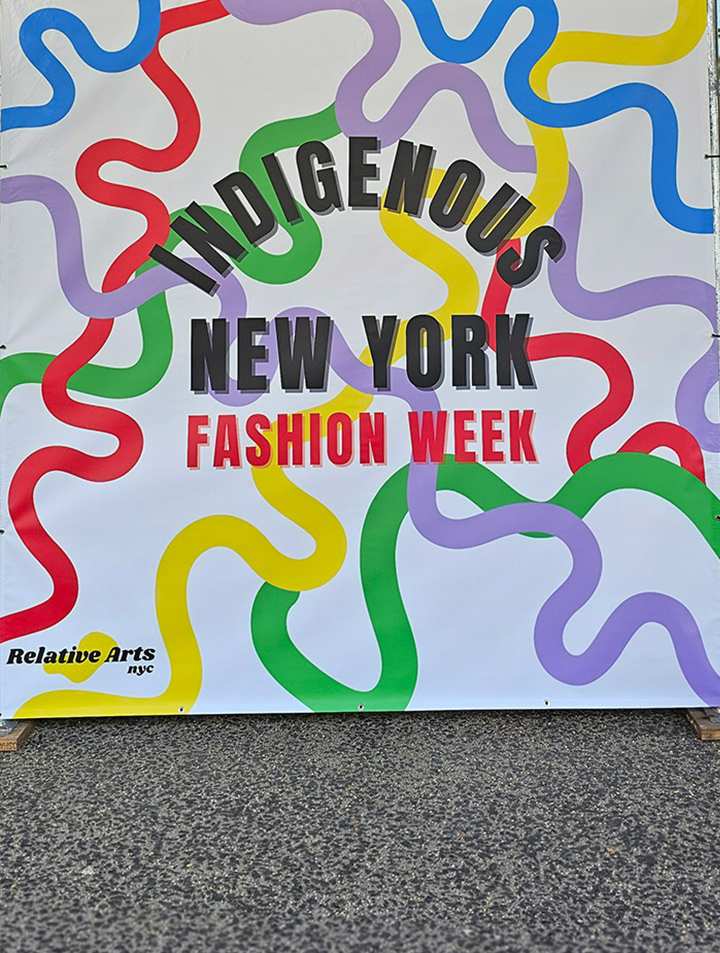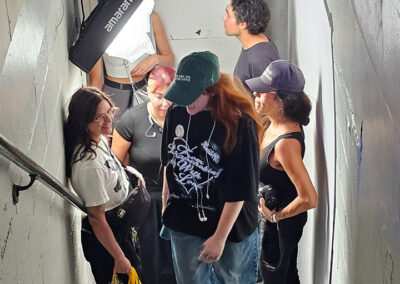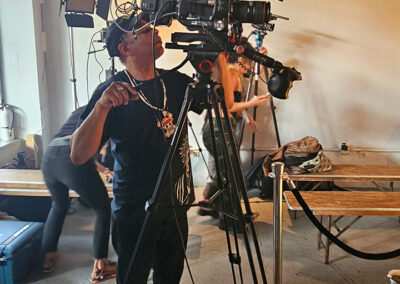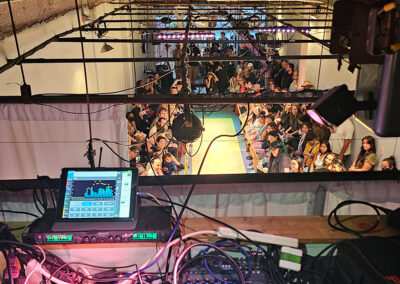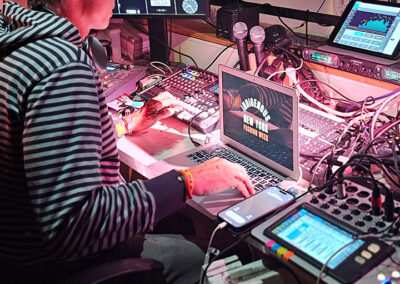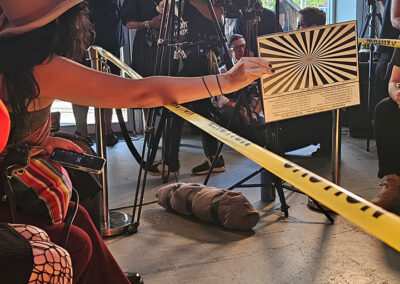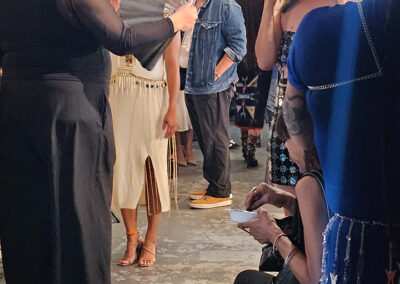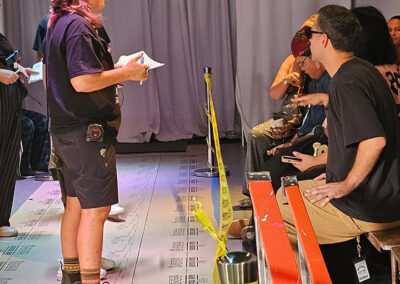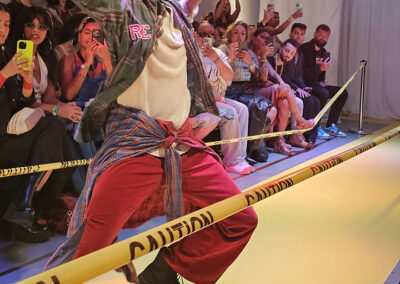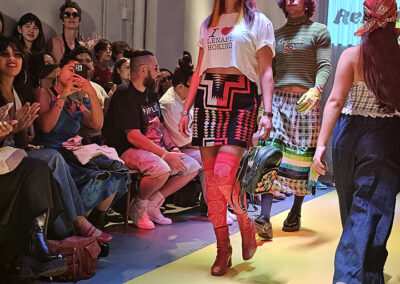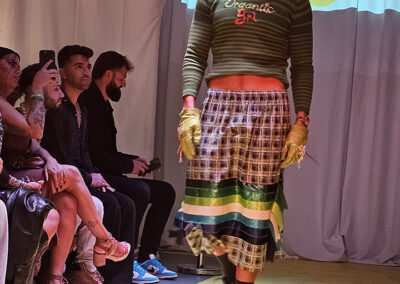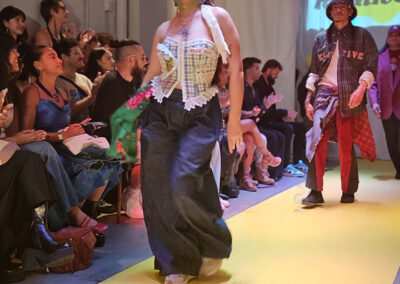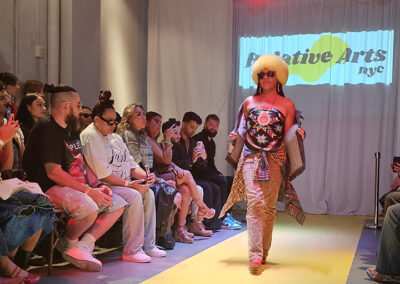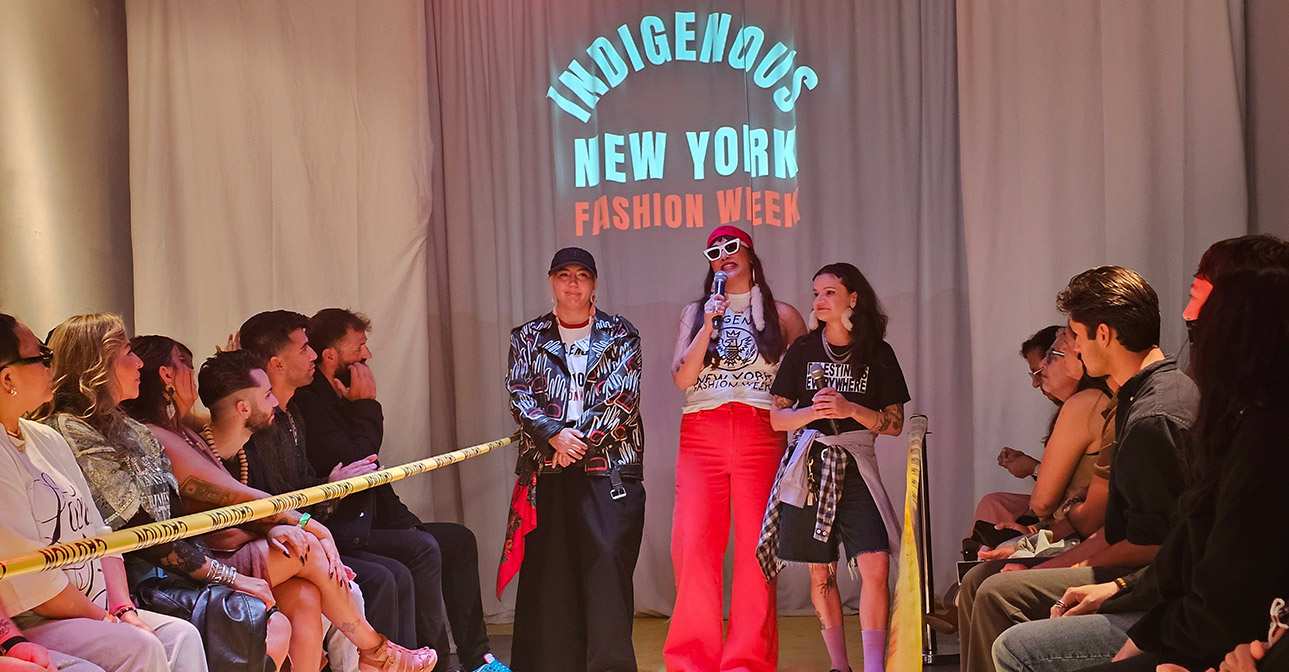
Korina Emmerich’s Journey to Fashion’s Biggest Stage
A Historic Moment in New York City Fashion
The lights dim, the beat rises, and the runway fills with colors, textures, and stories that have never before been given such a stage. Indigenous Fashion Week NYC (INYFW) was more than just a fashion show; it was history in motion. For the first time, Indigenous designers from across Turtle Island came together in New York City to present their work at fashion’s epicenter, in collaboration with Relative Arts NYC, a hub for Indigenous creativity and cultural exchange.
Among the visionaries leading this moment was Korina Emmerich, an Oregon-born Puyallup designer who has become one of the most powerful voices in Indigenous fashion. For those of us at Wisdom of the Elders, being present, volunteering, interviewing, and working behind the scenes was an unforgettable reminder of why cultural storytelling matters, from our communities in Oregon to the world stage.
Indigenous New York Fashion Week & Relative Arts NYC: A New Platform for Storytelling
Indigenous NYFW took place on the East Side of New York City, marking a milestone in representation and visibility. Its mission: to center authentic Indigenous voices, create opportunities for designers who have long been overlooked, and challenge the fast-fashion norms dominating the industry.
At its heart was Relative Arts NYC, the cultural and creative space Korina co-founded. Relative Arts is more than a gallery or boutique; it’s a gathering place where Indigenous artists and designers can share resources, collaborate, and connect directly with the community.
The idea grew from Korina’s own experiences navigating the fashion world: the lack of representation, the tokenization of Indigenous designers, and the need for an Indigenous-led space where culture is not just displayed but lived.
For Wisdom of the Elders, volunteering at this event meant stepping into a story much bigger than a runway. We helped behind the scenes, supported the production team, spoke with designers, and interviewed participants, all while witnessing firsthand how visibility creates empowerment.
Oregon Roots, Indigenous Heritage, and the Slow Fashion Ethos
Born and raised in Eugene, Oregon, Korina’s journey began far from New York’s flashing lights. Her Puyallup heritage, Oregon landscapes, and community values shaped her identity and vision from a young age. She recalls devouring fashion magazines, sketching designs, and carrying with her the teachings of her ancestors about the importance of respect for the land and its resources.
Those teachings now form the backbone of her work: slow fashion. Her designs embrace sustainability through made-to-order production, natural and recycled fibers, and a commitment to minimal waste. For Korina, slow fashion is not just a trend; it’s a continuation of Indigenous traditions that have always emphasized reciprocity with the earth.
As she often notes, being a Native designer means more than incorporating motifs; it’s about responsibility: ensuring cultural heritage is represented authentically, resisting appropriation, and creating space for Indigenous stories to flourish on their own terms.
Creative Leadership at INYFW and Relative Arts
Korina’s influence as co-founder and creative director of Indigenous NYFW shaped every aspect of the event. From selecting designers to setting the tone of authenticity, she worked tirelessly to ensure the runway celebrated Indigenous futurism rather than flattening it into stereotypes.
Behind the scenes, we saw her guiding volunteers, sharing laughs with fellow designers, and ensuring each voice was uplifted. At Relative Arts NYC, her role is just as vital: mentoring younger designers, curating collaborative exhibitions, and carving out a safe space for experimentation and identity.
Challenges and Triumphs
Korina’s path has not been without hurdles. In an industry often obsessed with trends and speed, she has resisted being pigeonholed, challenged cultural misrepresentation, and fought against the environmental damage of fast fashion. Producing Indigenous NYFW also carried challenges, budget constraints, limited resources, and the monumental task of coordinating designers, models, volunteers, and cultural protocols.
Yet the triumphs shine brighter: her work has been featured on magazine covers, she has spoken on panels across the country, and now she has co-created a historic fashion event in the world’s most competitive fashion capital.
Lessons for Young Oregon Designers
For young designers, especially Indigenous and marginalized voices in Oregon, Korina’s journey offers profound lessons:
- Stay authentic: Your cultural heritage and community are strengths, not limitations. Build with values. Sustainability and ethics are not obstacles; they can be your brand’s foundation.
- Find your voice: Fashion is storytelling; trust the stories only you can tell.
- Lean on the community: Networks, mentors, and collaboration will carry you through challenges.
- Balance art and business: Ethical production can coexist with market success if you remain persistent.
Her advice to youth starting is simple but powerful:
“Create from a place of honesty, and never let anyone else define your narrative.”
Carrying the Momentum Forward
Indigenous Fashion Week NYC was more than an event; it was a reclamation of space, identity, and creativity. Through her leadership, Korina Emmerich has proven that Indigenous designers belong not on the margins but at the center of global fashion conversations.
For readers here in Oregon and beyond, the call to action is clear: support Indigenous fashion. Follow designers, purchase their work, attend events, and share their stories. Each act of support fuels the momentum of cultural preservation and innovation.
At Wisdom of the Elders, we see Korina’s journey as a reflection of our mission: honoring ancestral wisdom, uplifting culture, and inspiring the next generation. From Eugene to New York, her path reminds us that designing for the future begins by respecting the past.
